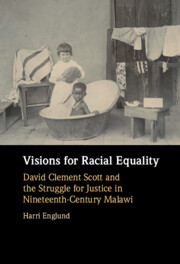 Visions for Racial Equality
Visions for Racial Equality Book contents
- Visions for Racial Equality
- Visions for Racial Equality
- Copyright page
- Contents
- Figures
- Maps
- Preface and Acknowledgements
- Maps
- 1 Introduction
- 2 Among the Wild Scotsmen
- 3 Champagne and Slaves
- 4 The Universal Vernacular
- 5 Frightful Libel upon Humanity
- 6 Rhodes Must Not Rise
- 7 A Future Foreclosed
- 8 Grief Never Wears Out
- 9 Liberal Translations
- 10 The Rest Is History
- Bibliography
- Index
4 - The Universal Vernacular
Published online by Cambridge University Press: 10 February 2022
- Visions for Racial Equality
- Visions for Racial Equality
- Copyright page
- Contents
- Figures
- Maps
- Preface and Acknowledgements
- Maps
- 1 Introduction
- 2 Among the Wild Scotsmen
- 3 Champagne and Slaves
- 4 The Universal Vernacular
- 5 Frightful Libel upon Humanity
- 6 Rhodes Must Not Rise
- 7 A Future Foreclosed
- 8 Grief Never Wears Out
- 9 Liberal Translations
- 10 The Rest Is History
- Bibliography
- Index
Summary
David Clement Scott’s African apprenticeship was nowhere more apparent than in his approach to the vernacular language. It was the most immediate source of Scott’s evolving thought on race relations. His translations of the Scriptures and his magisterial dictionary of the Chimang’anja language were at the core of his linguistic and philosophical work. In nineteenth-century Malawi, spatial mobility and political turbulence were matched by an assemblage of mutually intelligible language forms. Out of them would the names Chimang’anja, Chinyanja and Chichewa get codified as ‘languages’ in the twentieth century. Scott was not, however, detained by the concerns over choosing between one variant or another that would eventually spark debate. The vernacular was, for Scott, on a par with the biblical languages and could make its own contribution to the understanding of the Scriptures. For example, Scott’s translations of the idioms of slavery and friendship in the Hebrew Bible drew on the importance of these idioms in the turbulent conditions of nineteenth-century Malawi.
- Type
- Chapter
- Information
- Visions for Racial EqualityDavid Clement Scott and the Struggle for Justice in Nineteenth-Century Malawi, pp. 76 - 102Publisher: Cambridge University PressPrint publication year: 2022


